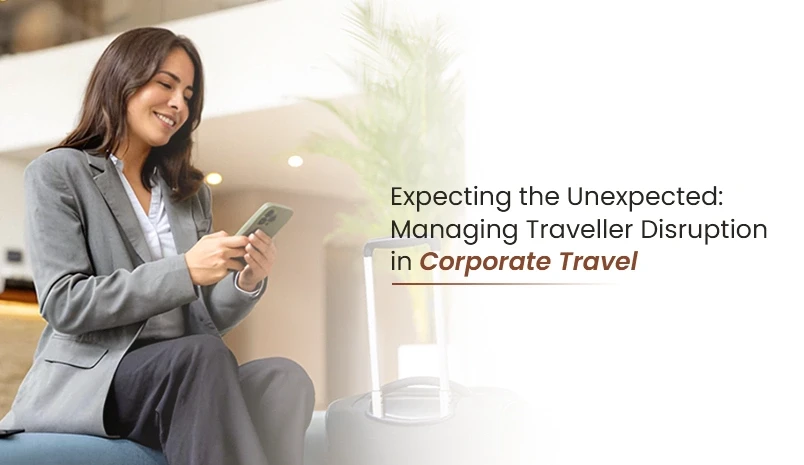Everything was going smoothly in the sphere of corporate travel until the pandemic hit. Boom, and there we had a complete shift in the travel scene altogether. To keep up with this shift, every corporate travel agency needs to modify its travel programmes to address the problems of unpredictability in a world where travel dynamics are always changing. Events around the world, health issues, and changes in the economy highlight the necessity for a resilient and adaptable corporate travel strategy. These five essential measures listed by SKIL corporate travel will assist you in reshaping your travel programme so that it continues to be resilient and flexible in the face of an unpredictable environment.
SKIL corporate travel always emphasises the significance of redefining travel policies to better align with the current environment. Examine current policy in light of evolving travel regulations, border constraints, and health and safety considerations. Establish explicit policies for both necessary and non-necessary travel, keeping in mind the health and welfare of your staff. Since flexibility is essential, think about including clauses that allow for last-minute adjustments and cancellations.
Provide staff with a thorough framework to manage the changing travel environment by introducing standards on health screenings, vaccine requirements, and travel insurance. It is essential to communicate these principles clearly so that staff members are aware of and satisfied with the safety precautions in place.
When possible, use technology to introduce virtual alternatives. When physical travel is restricted, video conferencing, virtual meetings, and remote collaboration tools have demonstrated their effectiveness in bridging the gap. To cut down on the amount of times that you must travel for meetings, conferences, and training sessions, think about using virtual choices.
Accepting virtual alternatives puts your company in a position to be flexible and forward-thinking while also fitting in with the current trend of remote employment. Invest in trustworthy online communication platforms, train staff members, and smoothly incorporate online services into your entire company's activities.
Make travel risk management a top priority and a fundamental part of your redesigned travel programme. It is essential to have a thorough awareness of potential hazards and the resources available to reduce them in an uncertain world. Work together with travel risk management services to remain informed about health warnings, security alerts, and worldwide risk assessments.
Establish a comprehensive duty-of-care programme with real-time communication channels, emergency support services, and traveller monitoring. Provide staff members with the tools and resources they need to make wise decisions when on the road. This proactive strategy not only increases worker safety but also fosters a sense of resilience in your travel programme.
In order to handle the unpredictability of the business environment, include flexibility in your supplier contracts. Negotiate flexible conditions that may be adjusted to meet evolving travel demands by closely collaborating with travel suppliers, such as hotels, airlines, and vehicle rental agencies. Resilient supplier contracts must include features like flexible cancellation policies, refundable choices, and penalty-free booking modifications.
Form alliances with vendors who recognise the importance of flexibility. Think of unique alliances and loyalty programmes that offer flexibility along with extra benefits. These adaptable supplier agreements make sure that your company can quickly adapt to changes in travel needs without having to pay more money than necessary.
Using data can help you make well-informed decisions for your travel programme. To learn more about travel trends, costs, and risk concerns, use data analytics technologies. Examine past travel information to spot patterns and make calculated choices that support the goals of your company.
By putting data-driven decision-making into practice, you may minimise travel costs, find ways to cut costs and take proactive measures to deal with new travel issues. Additionally, it lets you monitor the effectiveness of your redesigned travel programme and make changes in response to changing business requirements and real-time data.
Adapting your travel schedule to a changing environment requires planning and flexibility. Your company may successfully traverse the intricacies of today's travel environment by rethinking travel policy, embracing technology, emphasising travel risk management, negotiating flexible supplier contracts, and putting data-driven decision-making into practice.
Acknowledge that a resilient travel program's foundation is its capacity for innovation and adaptation. Review and adjust your plans on a regular basis to take into account new developments in technology, shifting business priorities, and changing conditions. By doing this, your company not only reduces risks but also puts itself in a successful position in the ever-changing and unpredictable world of business travel.

Corporate travel is never truly predictable. Flights get cancelled. Hotels overbook. Roads get bl...
- 23 February 2026 | by Kuldeep
Corporate travel is no longer just about booking flights and hotels. It has grown into a complex ...
- 20 February 2026 | by Heena saini
Travel managers have always been busy people. They book flights, fix last-minute hotel issues, ma...
- 18 February 2026 | by Kuldeep
Planning a business trip with many stops is often very hard. You have to find flights that connec...
- 16 February 2026 | by Kuldeep
The world of work is changing fast. Many people are back on the road for work trips. Companies ar...
- 13 February 2026 | by Heena saini